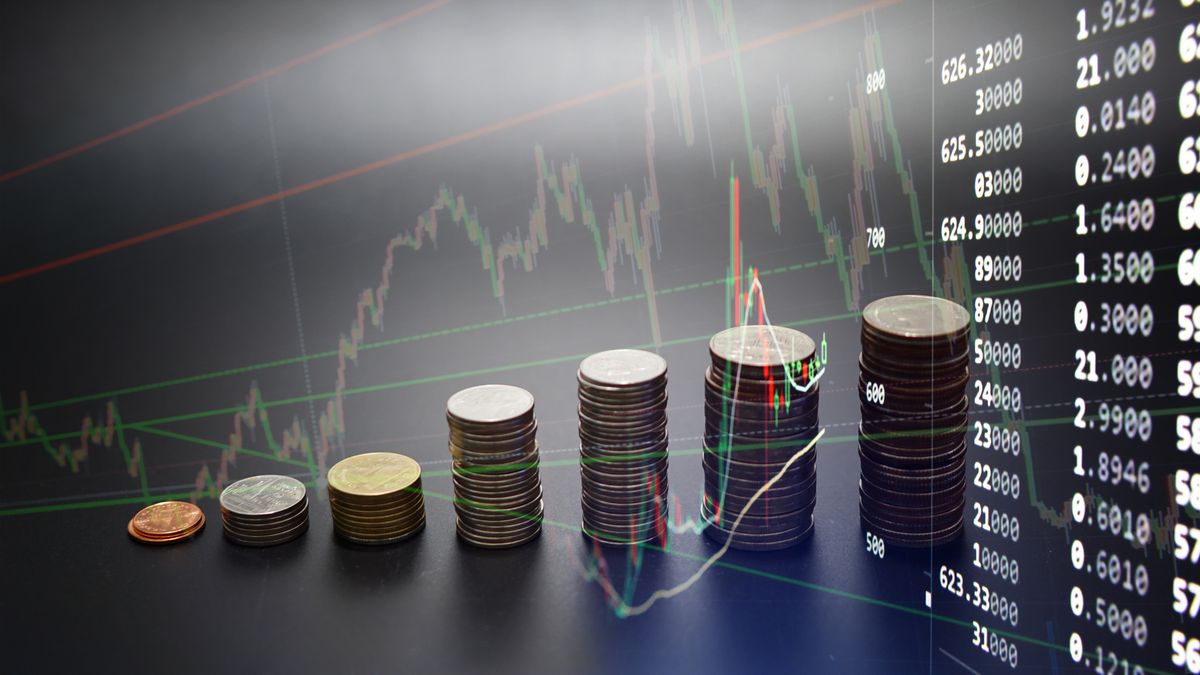How did the Eurovision Song Contest go? Bad for Germany again. Who triumphed, what was laughed at, cried, tweeted at the world’s biggest TV music show? The ESC night at a glance.
The streak of bad luck never ends: Germany came last again in the Eurovision Song Contest. Sweden has won the ESC for the seventh time. The singer Loreen won the world’s biggest music show for the second time for her country. In 2012 she succeeded with “Euphoria”, this time she did it with the very similar sounding “Tattoo”. So far there had only been one two-time ESC winner: Irishman Johnny Logan – that was in 1980 and 1987, when the Grand Prix was much smaller.
Finland finished second on Sunday night, followed by Israel, Italy, Norway and Ukraine. Austria came 15th, Switzerland 20th.
Germany at the bottom again
If you want to see Germany at the top, you have to turn the table: That was almost always the conclusion after the ESC. Germany ended up at the bottom this time with the Hamburg dark rock band Lord Of The Lost, as was the case in 2022, 2016 and 2015. The German series of bankruptcies in recent years with last or (2021, 2019, 2017) penultimate places was only interrupted by Michael Schulte in 2018 with a fourth place.
“Obviously it’s tough finishing in last place,” Lord Of The Lost frontman Chris Harms said after the show. But that “cannot spoil this incredibly beautiful experience”. They would “join again at any time”. They just kept going now. “We’re in the summer of festivals now. We’ve got tons of sold-out shows. We’re going on tour in Europe with Iron Maiden.”
the winner
Loreen owes her victory above all to the jury votes, in which she received 340 points. There were 243 viewers (altogether 583). The Swedish singer with long clawed fingernails is 39 years old and hails from Stockholm. Eleven years ago, she not only won the ESC title with “Euphoria”, but also stormed to the top of the charts in Germany and other countries. Since then, the Swede had become quieter internationally.
The winner of the hearts, or at least the TV audience
With 376 points, Finland’s rap metal electro song was clearly ahead among TV viewers (plus 150 jury points; a total of 526). Finland was also number one for German television viewers, followed by Italy, Albania, Ukraine, Croatia, Norway, Poland, Switzerland, Belgium and Sweden. With a bare chest and a kind of neon green bolero around his shoulders, the 29-year-old singer Käärijä (actually Jere Pöyhönen) thrilled with his wild number “Cha Cha Cha”. The shrill song with a catchy pop chorus and a pink ballet quartet – with dancers deliberately grinning stupidly – was almost tailor-made for the ESC.
By the way, Käärijä has a tattoo on his chest that is reminiscent of the logo of his favorite band Rammstein – a model that can also be heard in “Cha Cha Cha”. As early as 2006, a Finnish contribution made a name for itself with a very unusual performance. At that time, the musicians of the heavy metal band Lordi, disguised as monsters, won the Nordic country with “Hard Rock Hallelujah”.
The participants
26 songs competed in the final. A total of 37 countries took part in the ESC this time. Eleven entries were eliminated in the semifinals on May 9th and 11th. In addition to Germany, France, Great Britain, Italy and Spain are automatically set for the final as major sponsors, as is last year’s winner, this time Ukraine.
The start of the show
The grand finale began with a clip with scenes from the Maidan, among others, from Kiev – where the singer Oleh Psjuk from the Kalush Orchestra got himself a coffee and where there was dancing in the subway station. Then last year’s winners also performed live in the hall. The 67th Eurovision Song Contest took place in Liverpool, England, although Ukraine won in Turin in 2022. Britain, as the runner-up, had stepped in to host Russia-stricken Ukraine.
Royal greetings
Princess Kate sat in the little clip at the beginning of a scene at the piano. The wife of heir to the throne Prince William wore a blue dress. The video was also published on William and Kate’s Instagram account. It was a pleasure for her to be part of the campaign with the Kalush Orchestra.
The flag parade
With a march and a flag parade like at the Olympics, the show went on. However, the German band Lord Of The Lost did not use a black, red and gold flag, which some Twitterers complained about.
The moderators
After the semi-finals were moderated by Ukrainian singer Julia Sanina, “Britain’s Got Talent” judge Alesha Dixon and actress Hannah Waddingham, talk show host and ESC expert Graham Norton was added to the final. The four led through the show warm-heartedly. Matching the Ukraine flag, Dixon wore a blue dress and Sanina a yellow one. Waddingham and Norton moderated the exciting points presentation. The 48-year-old Waddingham was hit on by the German points announcer Elton, who was connected from Hamburg. The 52-year-old asked whether she would take a biscuit from him. “It’s a jury, not Tinder,” Norton commented on this joke attempt from Germany.
The most emotional moment
The whole hall joined in when the Dutch musician and ESC winner from 2019, Duncan Laurence, sang the classic “You’ll Never Walk Alone” with presenters from previous years. Many Ukraine flags were waved. Tears of emotion flowed. The song by Richard Rodgers and Oscar Hammerstein from the musical “Carousel”, which premiered in 1945, encourages us to look to the future with confidence. It was made famous by Liverpool band Gerry and the Pacemakers in the 1960s and has been Liverpool FC’s stadium anthem ever since. That evening it was a moving gesture to Ukraine, which is suffering from Russia’s war of aggression and was therefore unable to host the ESC 2023.
The Bitterst Moment
While the spectators in Liverpool were celebrating, the hometown of the Ukrainian ESC participants Tvorchi was attacked by Russia. Shortly before the duo’s performance, explosions from Russian rockets rocked the western Ukrainian city of Ternopil. The authorities announced this and called on the residents to go to shelters.
Peter Urban’s last words
“It was always a pleasure and a great honor for me,” said Peter Urban (75) when he said goodbye to the German TV audience after a quarter of a century as an ESC commentator. In the next few years he could now watch the ESC together with his family. He thanked the spectators for their loyalty, “even in the years when things didn’t go so well for us”. And: “I say bye-bye to a wonderful ESC in Liverpool. Your Peter Urban. Thank you.”
The alternative commentators
Meanwhile, the entertainers Jan Böhmermann and Olli Schulz commented on the ESC for the Austrian Broadcasting Corporation (ORF) – and sometimes found clear words for some acts. They even talked during performances on radio station FM4, or sang along with songs, or ate something. Although they were on the microphone for Austria, Böhmermann and Schulz spoke about Germany quite often.
Source: Stern
I am an author and journalist who has worked in the entertainment industry for over a decade. I currently work as a news editor at a major news website, and my focus is on covering the latest trends in entertainment. I also write occasional pieces for other outlets, and have authored two books about the entertainment industry.




